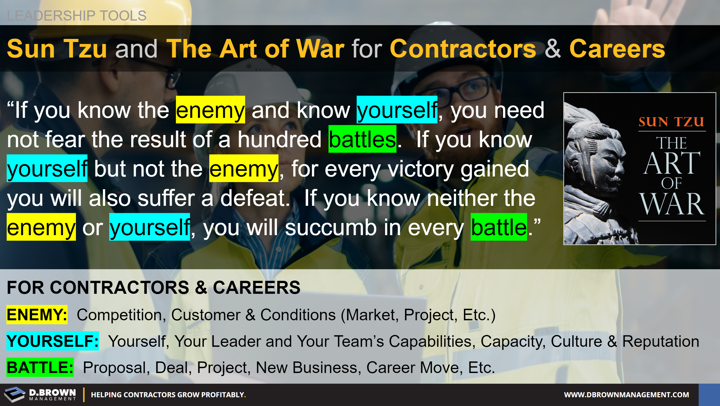Take on too much and you spread yourself too thin, introducing excessive stress, risk, and potentially failing in an unrecoverable way.
Taking on too little will leave you with wasted potential and won’t create the right levels of stress that develops character, relationships, and capabilities.
Taking on the wrong things won’t be fulfilling in the long-term, so it isn’t truly sustainable.
PLANNING STARTS A GOOD INVENTORY
Know yourself deeply, including what you are really good at and what you aren’t so great at. Know what you love doing and what you don’t like doing.
Understand your customer’s true needs, both stated and unstated.
Know comparatively how you and your competition fulfill those needs. Be very honest with yourself about how your respective strengths and weaknesses are evaluated by the customer.

